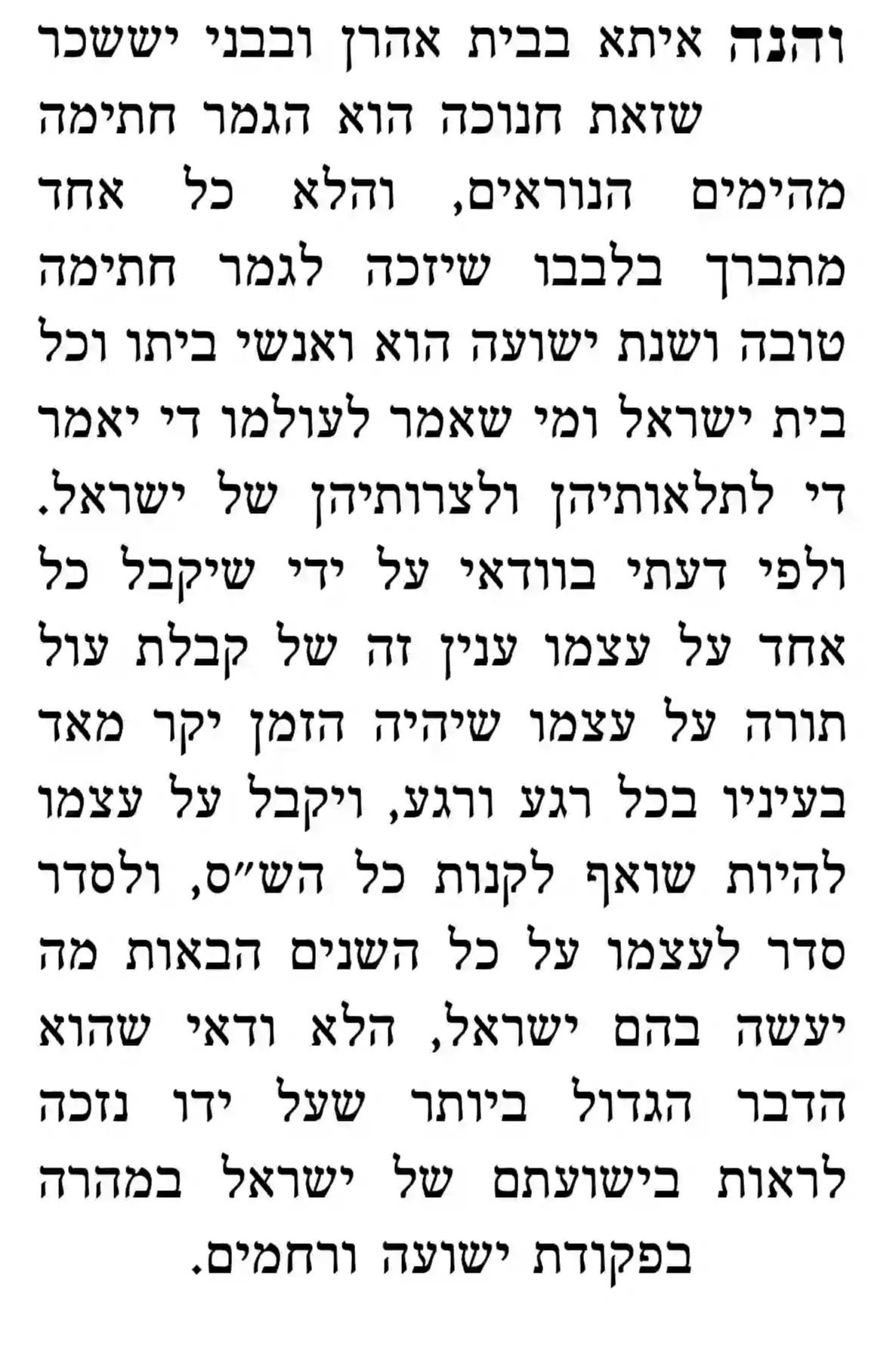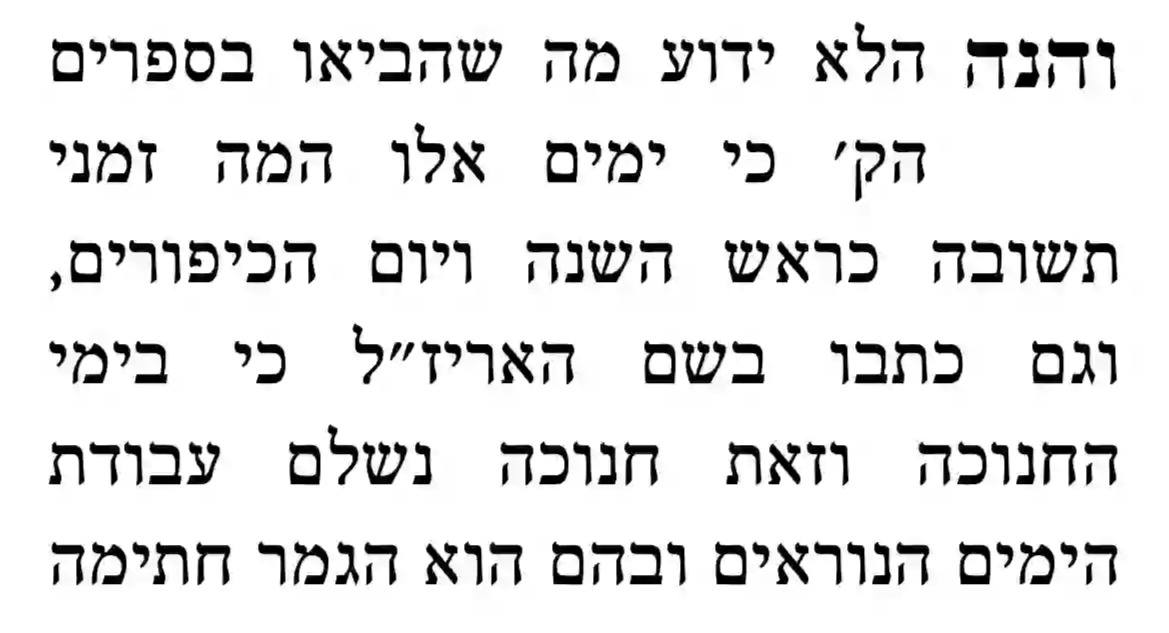I heard that the judgement determined on Rosh Hashana does not start to get carried out until some date after the chagim, possibly in Marcheshvan or later. Is anyone familiar with this teaching and know of the date to which it refers? Thanks.
2 Answers
It is widely discussed in Chassidish literature that the final day of Chanukah - known as 'Zos Chanukah' is when the judgement from Rosh Hashanah is properly finalised. In Sefer Orchos Aharon here on p.106 (see image) it notes how in Beis Aharon and the Bnei Yissoschor they both expressly write that Zos Chanukah represents the 'chasimah' - the sealing of the Yomim Noraim (the High Holy Days spanning Rosh Hashanah to Yom Kippur).
It is also brought down (on p.114 at the bottom of the right column) in the name of the Arizal.
It writes here eloquently:
Hassidic masters quote from Kabbalistic sources that the God’s mercy extends even further, giving the Children of Israel till the final day of Chanukah (known as "Zot Chanukah" based on words which appear in the Torah reading of that day), to return to Him and receive a favorable judgment. They see several hints to this in different verses. One is Isaiah 27:9: “Through this (zot) will Jacob’s sin be forgiven” – i.e., on account of the holiness of Zot Chanukah.
(The notion appears to be stated slightly differently in different works – such as that the judgment is sealed on Hoshanah Rabbah but not delivered until Chanukah, or that a "temporary" one is delivered earlier but the "final version" not till Chanukah, or that a Divine Hand is extended till the end of Chanukah awaiting our repentance.)
Some explain the reasoning behind this is that once the High Holidays conclude, the “ordinary” year begins. This is a time in which we can put into practice the resolutions we made during the days of judgment. Thus, God gives us additional time to show Him our commitment and devotion – that this year really is better – and if we do so, to earn a better judgment. This initiation period of the year concludes with the end of Chanukah.
Also note this post here by @Menachem:
Teachings of Kabbalah and Hasidism explain that Zot Hanukkah is a day to repent similar to Yom Kippur celebration. It is the final day in which to do teshuva, following Yom HaKippurim and Hoshana Rabba, the last chance to get a negative decree dissolved…. Zot has gematria 408, which is 3 times 136, 136 standing each for Tzom/fasting, Kol/prayer, and Mamon/charity, the three things to nullify an evil decree.
-
-
Thank you for your answer. Sorry for not accepting it sooner. Have a meaningful Zot Chanukah!– AriCommented Dec 16, 2020 at 19:21
-
I am guessing that you mean it does not start until after Hoshana Rabba.
Hoshana Rabba is the last of the days of mercy. While the judgment takes places on Rosh Hashanah and sealed on Yom Kippur there is still a chance to "appeal" until Hoshana Rabba.
-
Thank you. Yes, I am aware of the teaching by Hoshana Rabba but I thought there was yet a later date (i.e. the judgment was totally decided already but not carried out yet). I thought it may somehow be related to 7 Marcheshvan when those in Eretz Yisrael start v'Ten tal u'matar. I don't know.– AriCommented Sep 16, 2020 at 14:37
-
Perhaps you are looking for the Tosefta Rosh Hashana 1:13 which gives the opinion of Rav Yehuda that everything is judged on Rosh ha-Shanah, and each and every verdict is sealed at its appropriate time: on Passover, the verdict for the grain crop; on Shavous , the verdict for fruits; on Sukkot, the verdict for water; and the verdict for people is sealed on the Day of Atonement.– SchmerelCommented Sep 16, 2020 at 14:45


